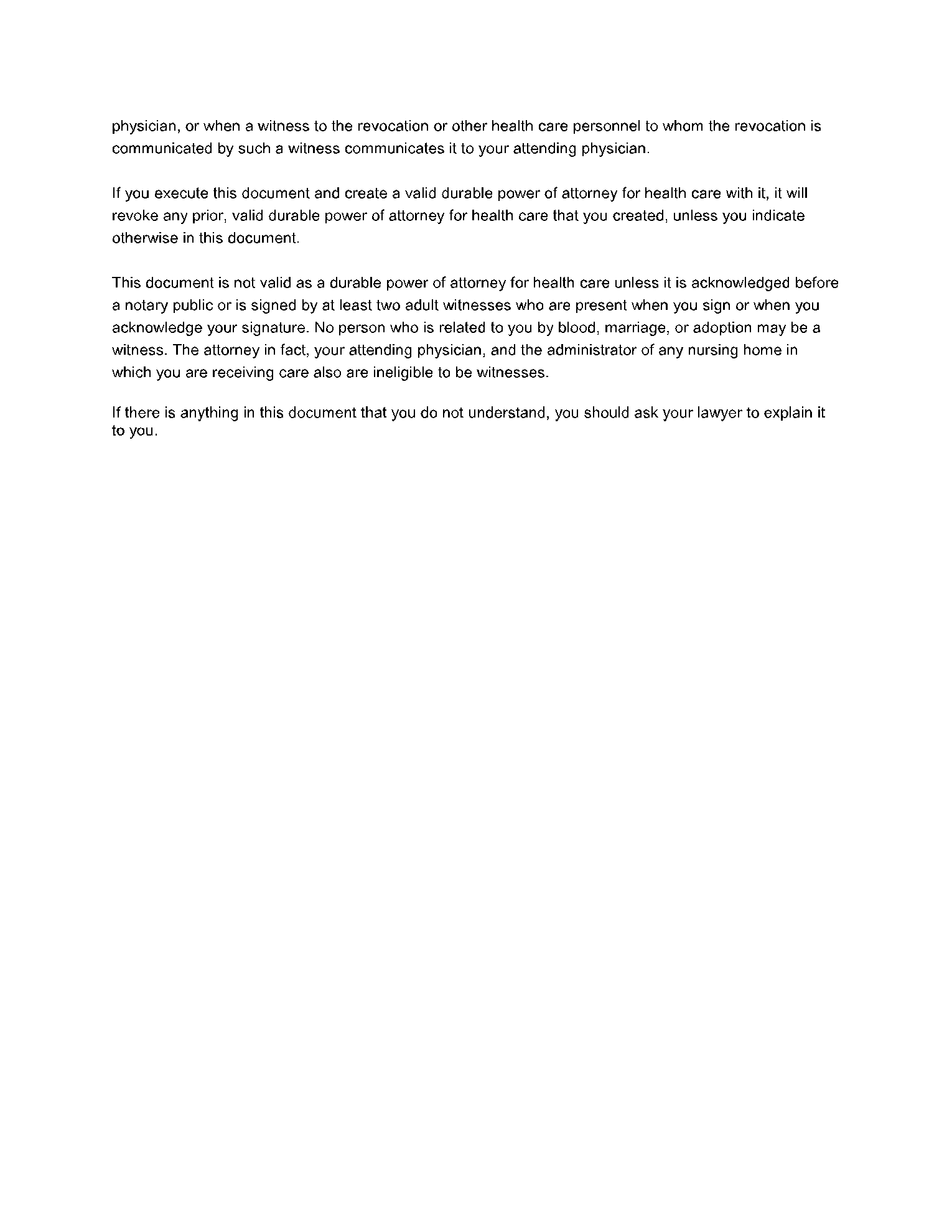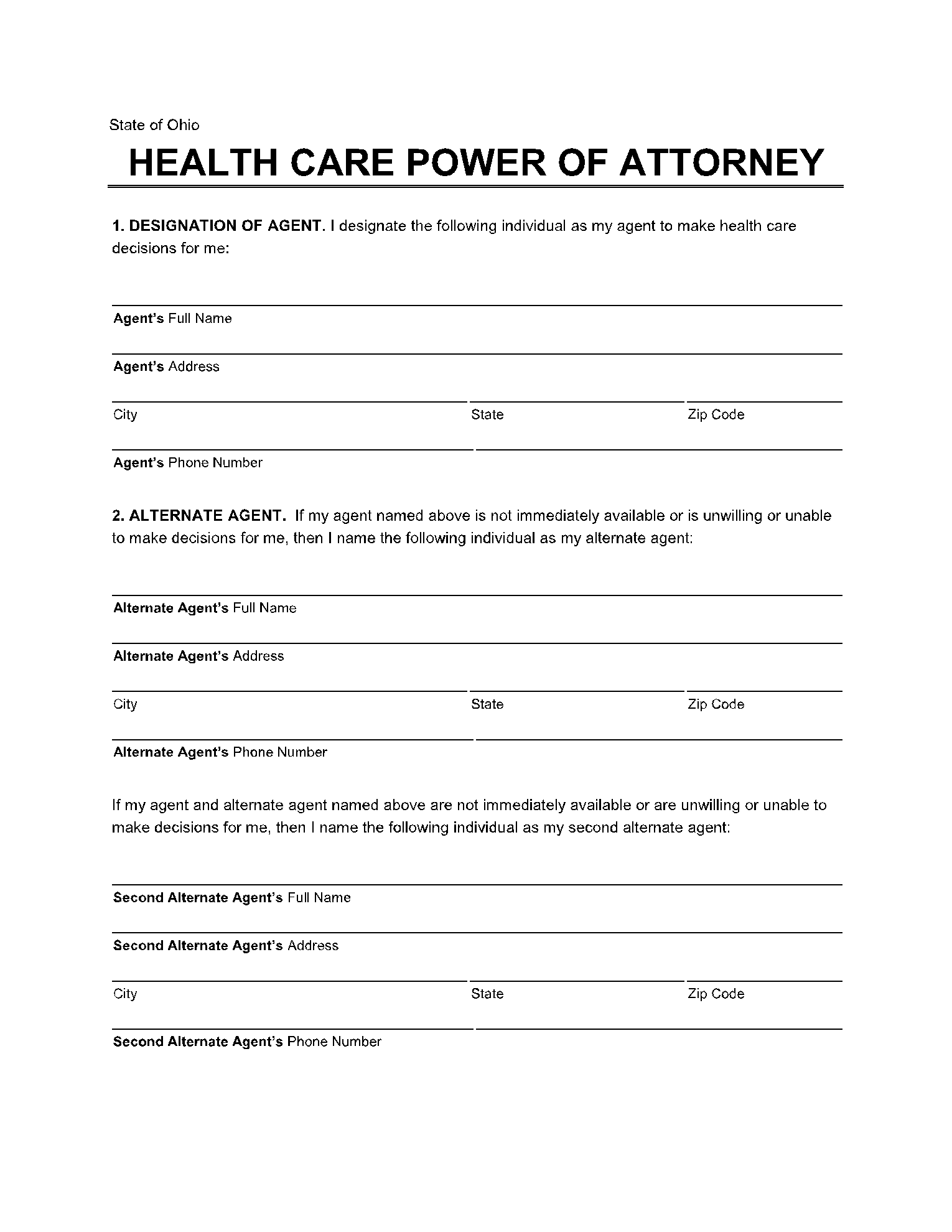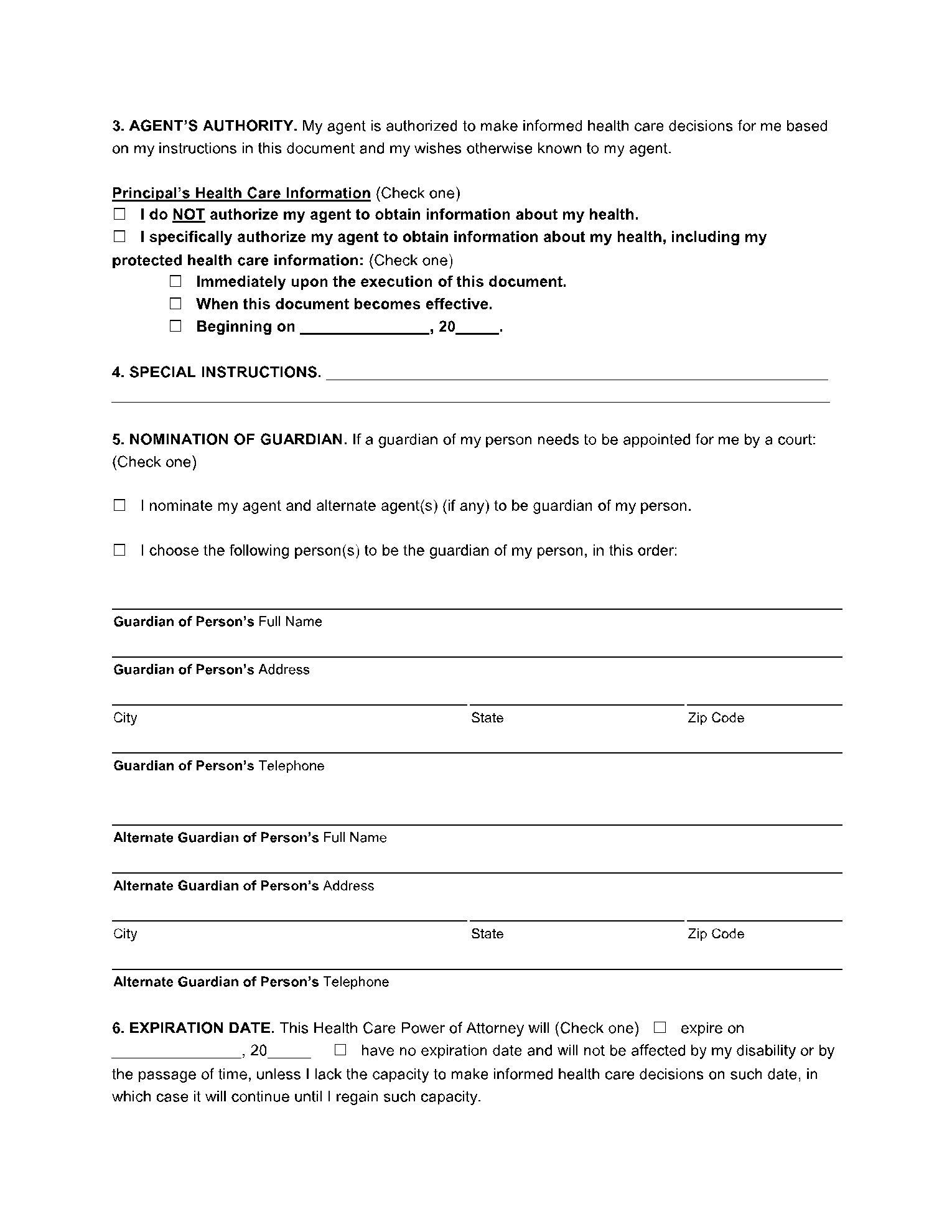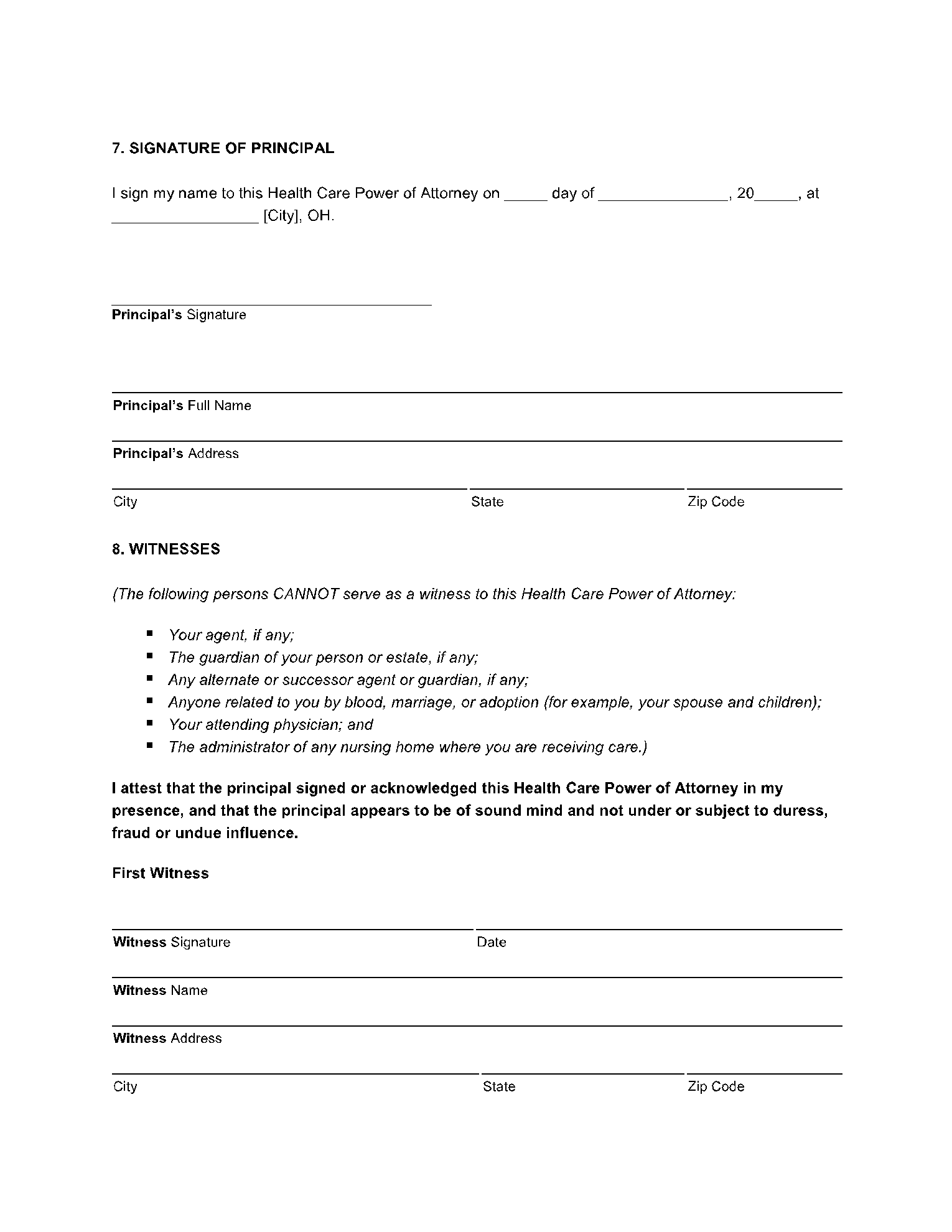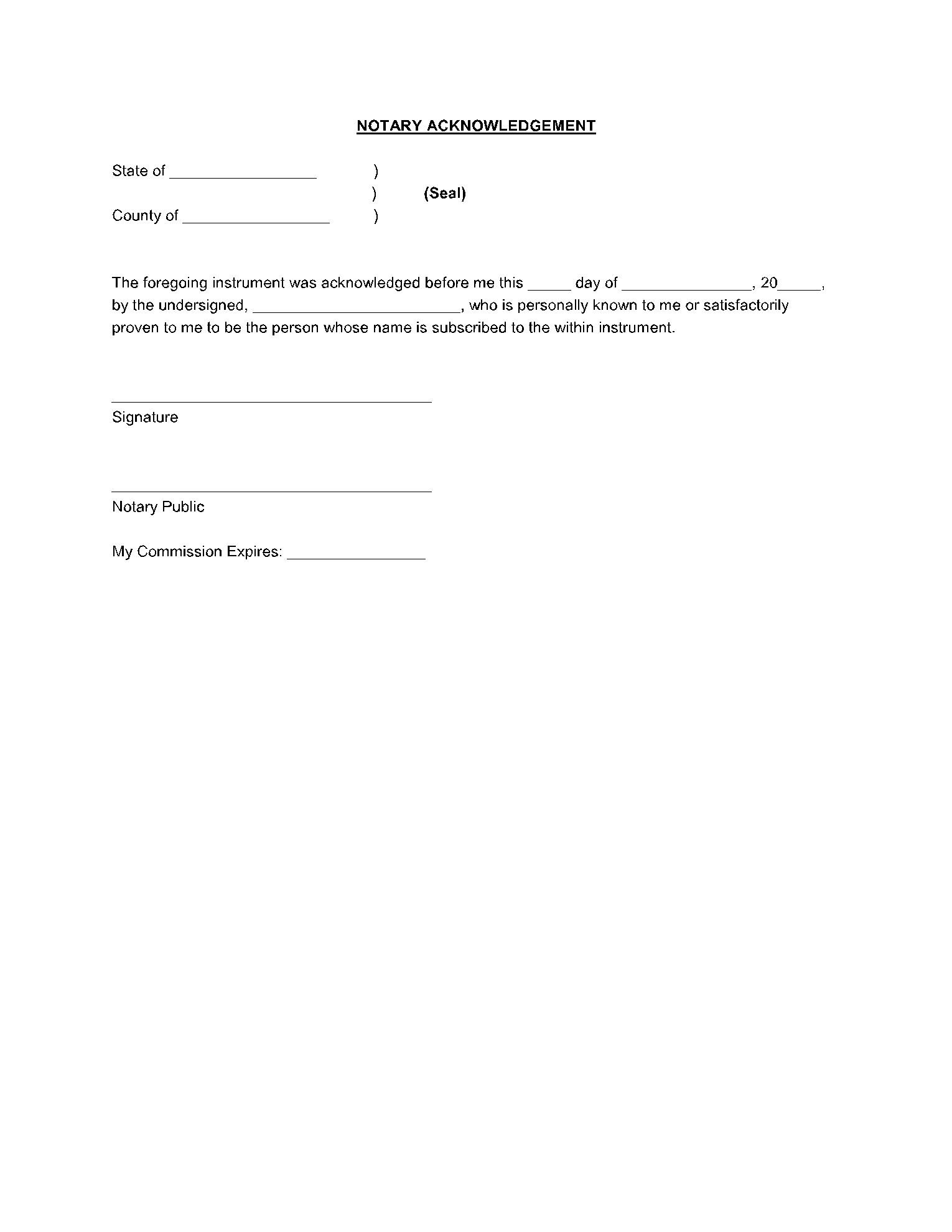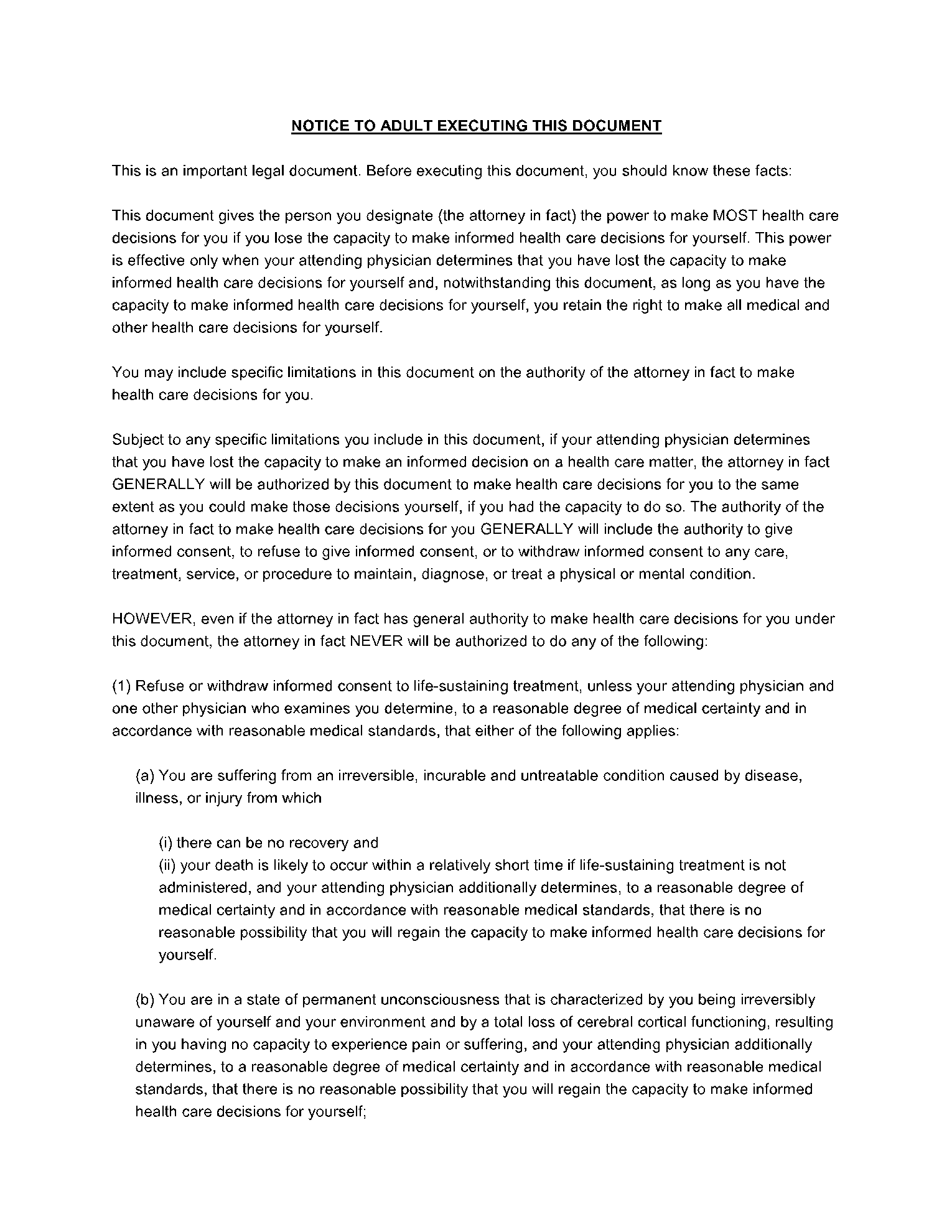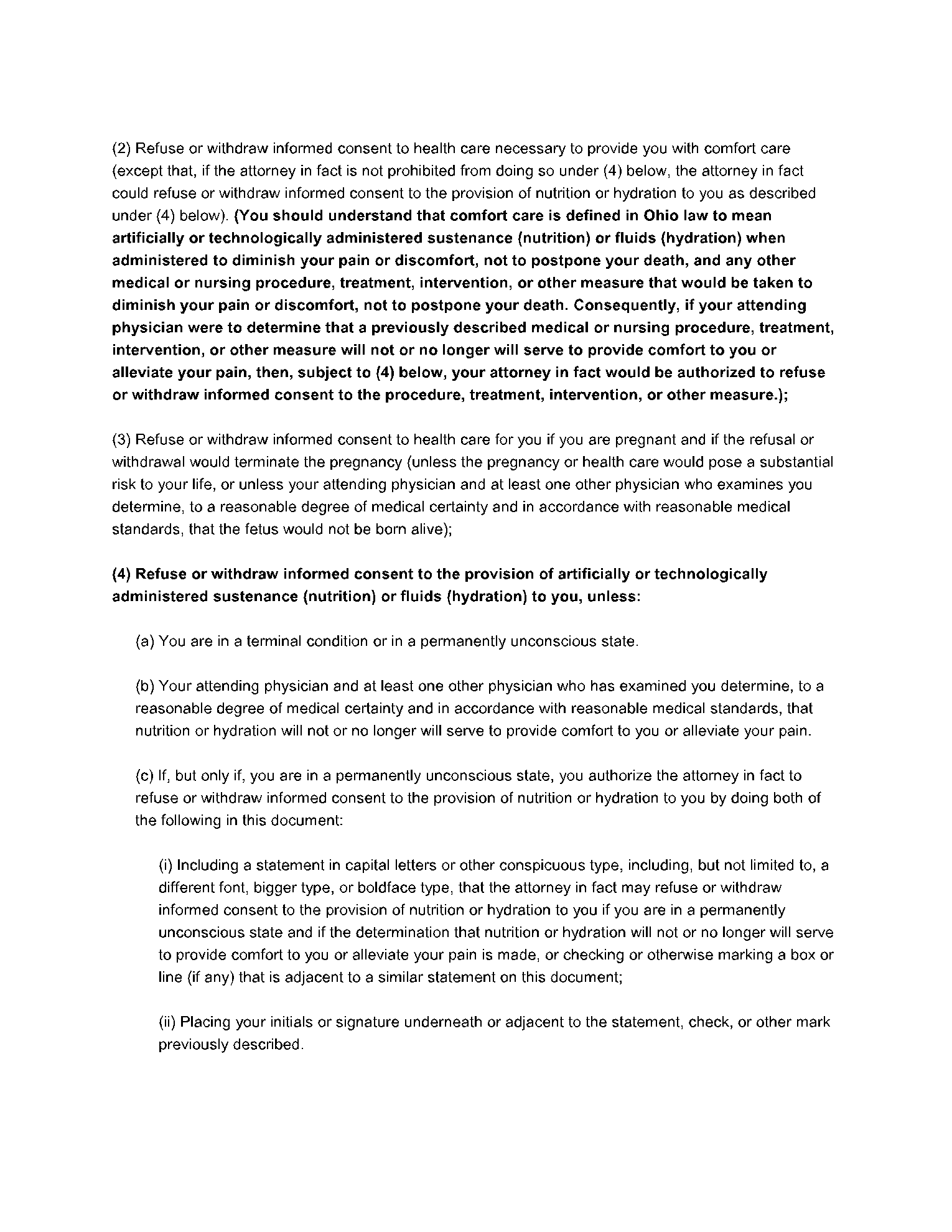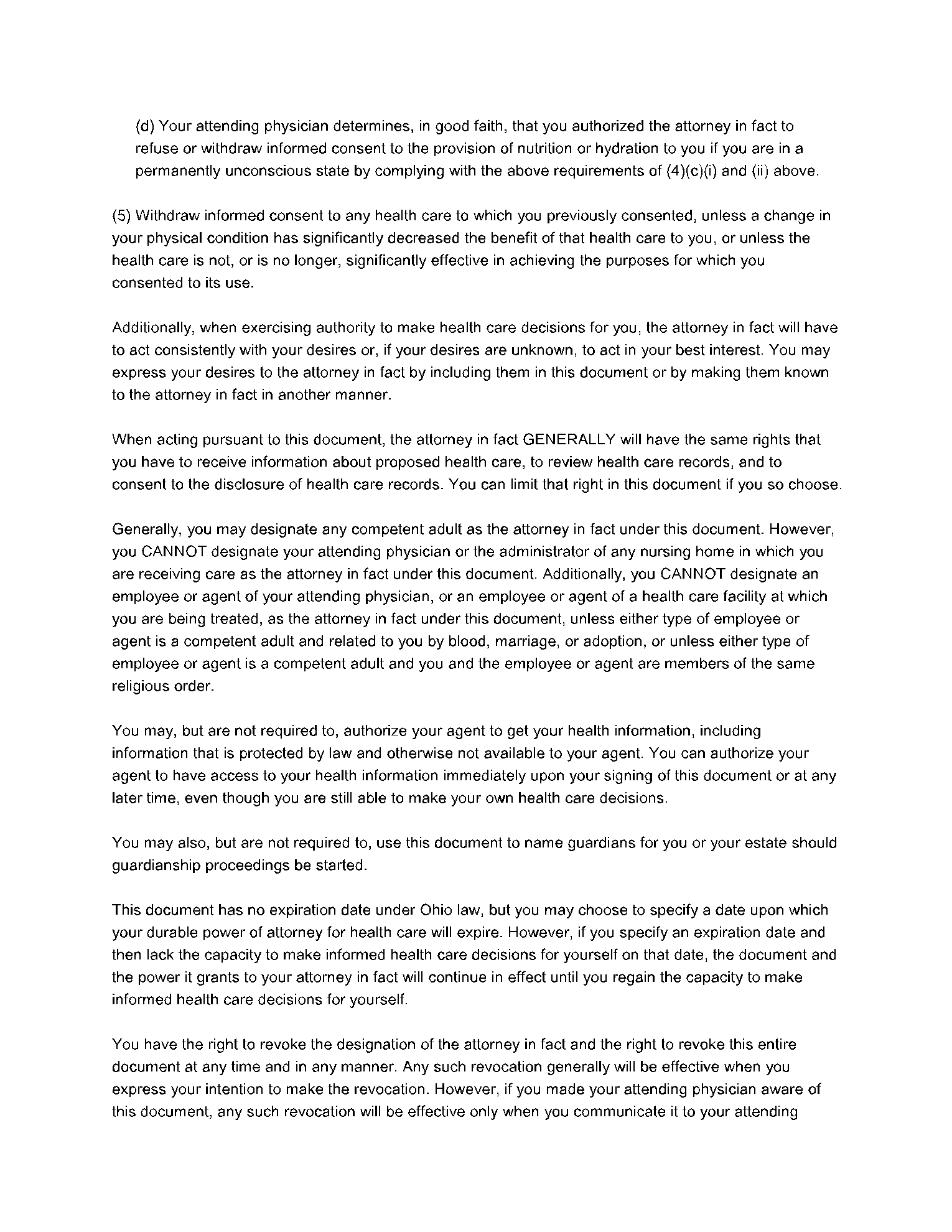Whether you are planning to travel abroad, or you are worried about an uncertain future, having a healthcare power of attorney in place will help you a great deal. It is a legal document that allows an appointed party to take health related decisions on the principal’s behest.
Don't forget to include the following provisions in your power of attorney template:
-
- Name of the agent
- Name of the alternate agents in case the primary agent is not available or incapable
- Contact details for both the primary and the alternate agents
- An outline of the powers conferred upon the agent
- Principal’s signature or undertaking
What Is An Ohio Healthcare Power Of Attorney?
Following the Ohio Revised Code’s Chapter 1337.17, a healthcare power of attorney is necessary for unforeseen future events such as accidents, incapacitation, or end-of-life care. Such a document allows both the medical personnel and the appointed Agent to form a clear and complete idea about the preferences of the Principal in terms of medical care and other related issues.
A typical Ohio healthcare power of attorney document contains the following items:
- Name of the Agent designated to be responsible for carrying the Principal’s healthcare related decisions on behalf of the Principal.
- A few options of the alternate Agents in case the primary Agent is not available or incapable
- Contact details for both the primary and the alternate Agents
- An outline of the powers conferred upon the Agent
- Principal’s signature or undertaking
Access healthcare facilities with Ohio healthcare power of attorney template
What if you are diagnosed with a life-threatening medical condition? Do you want someone to look after you and make decisions for you in the state of Ohio? Download the form template needed to create the Ohio Healthcare Power of Attorney to mention the agent's limitations and responsibilities.
Save the form template to make edits.
How Does an Ohio Healthcare Power of Attorney Work?
There may come a time in our lives when due to certain medical conditions or injury, we are effectively unable to make our own decisions regarding healthcare. For times like that, having an Ohio health care power of attorney can make a world of difference. This document allows you to designate an Agent reliable and trustworthy to make these decisions for you.
In the form, the Principal lays out all the directives for the Agent along with the extent of his/her power. This document is then signed by both the parties in the presence of two witnesses and a Notary Public.
Who Needs an Ohio Healthcare Power of Attorney?
Medical power of attorney Ohio can be drawn by and is helpful to any resident of Ohio.
There are innumerable risks around us irrespective of our age, gender, or health conditions. Especially if you have a specific wish, relating to end-stage treatment, this document allows you to appoint a trustworthy Agent to carry out your wish.
Although a medical power of attorney is helpful at any point in your adulthood, it is often created after the individual has faced some or the other kind of life-altering circumstances. Such as:
- After being diagnosed with a life-threatening medical condition
- Extended travel abroad
- Military deployment
- Accident of any kind
Access healthcare facilities with Ohio healthcare power of attorney template
What if you are diagnosed with a life-threatening medical condition? Do you want someone to look after you and make decisions for you in the state of Ohio? Download the form template needed to create the Ohio Healthcare Power of Attorney to mention the agent's limitations and responsibilities.
Save the form template to make edits.
Ohio Health Care Power of Attorney V.S. Ohio Living Will
The medical power of attorney in Ohio is used along with the living will which specifies actions or measures that you want or do not want to be taken should the need arise. This will help your Agent to make an informed decision with respect to your healthcare.
Visit CocoSign to download the form you require to draw up the Ohio Healthcare Power of Attorney. CocoSign has a range of templates for various types of power of attorney that can be drawn in the state of Ohio.
DOCUMENT PREVIEW
Comfort care means any measure taken to diminish pain or discomfort, but not to postpone death.
Donor Registry Enrollment Form means a form that has been designed to allow individuals to specifically register their wishes regarding organ, tissue and eye donation with the Ohio Bureau of Motor Vehicles Donor Registry.
Do Not Resuscitate or DNR Order means a medical order given by my physician and written in my medical records that cardiopulmonary resuscitation or CPR is
not to be administered to me.
Health care means any medical (including dental, nursing, psychological, and surgical) procedure, treatment, intervention or other measure used to maintain, diagnose or treat any physical or mental condition.
Health Care Power of Attorney means this document that allows me to name an adult person to act as my agent to make health care decisions for me if I become unable to do so.
Life-sustaining treatment means any health care, including artificially or
technologically supplied nutrition and hydration, that will serve mainly to prolong the process of dying.
Living Will Declaration or Living Will means another document that lets me
specify the health care I want to receive if I become terminally ill or permanently unconscious and cannot make my wishes known.
Permanently unconscious state means an irreversible condition in which I am permanently unaware of myself and surroundings. My physician and one other physician must examine me and agree that the total loss of higher brain function has left me unable to feel pain or suffering.
Principal means the person signing this document.
Terminal condition or terminal illness means an irreversible, incurable and
untreatable condition caused by disease, illness or injury. My physician and one other physician will have examined me and believe that I cannot recover and that death is likely to occur within a relatively short time if I do not receive life-sustaining treatment.
[Instructions and other information to assist in completing this document are set forth within brackets and in italic type.]
No Expiration Date. This Health Care Power of Attorney will have no expiration date and will not be affected by my disability or by the passage of time.
Guardian. I intend that the authority given to my agent will eliminate the need for any court to appoint a guardian of my person. However, should such proceedings start, I nominate my agent to serve as the guardian of my person, without bond.
Enforcement by Agent. My agent may take for me, at my expense, any action my agent considers advisable to enforce my wishes under this document.
Release of Agent’s Personal Liability. My agent will not incur any personal liability to me or my estate for making reasonable choices in good faith concerning my health care.
Copies the Same as Original. Any person may rely on a copy of this document.
Out of State Application. I intend that this document be honored in any jurisdiction to the extent allowed by law.
Living Will. I have completed a Living Will: Yes No
Anatomical Gift(s). I have made my wishes known regarding organ and tissue donation in my Living Will: Yes No
Donor Registry Enrollment Form. I have completed the Donor Registry Enrollment Form:
Yes No
SIGNATURE
[See next page for witness or notary requirements.]
I understand the purpose and effect of this document and sign my name to this Health Care Power of Attorney on , 20 , at , Ohio.
PRINCIPAL
[You are responsible for telling members of your family and your physician about this document and the name of your agent. You also may wish, but are not required to tell your religious advisor and your lawyer that you have signed a Health Care Power of Attorney. You may wish to give a copy to each person notified.]
[You may choose to file a copy of this Health Care Power of Attorney with your county recorder for safekeeping.]
[This notice is included in this printed form as required by Ohio Revised Code § 1337.17.]
NOTICE TO ADULT EXECUTING THIS DOCUMENT
This is an important legal document. Before executing this document, you should know these facts:
This document gives the person you designate (the attorney in fact) the power to make MOST health care decisions for you if you lose the capacity to make informed health care decisions for yourself. This power is effective only when your attending physician determines that you have lost the capacity to make informed health care decisions for yourself and, notwithstanding this document, as long as you have the capacity to make informed health care decisions for yourself, you retain the right to make all medical
and other health care decisions for yourself.
You may include specific limitations in this document on the authority of the attorney in fact to make health care decisions for you.
Subject to any specific limitations you include in this document, if your attending
physician determines that you have lost the capacity to make an informed decision on a health care matter, the attorney in fact GENERALLY will be authorized by this
document to make health care decisions for you to the same extent as you could make those decisions yourself, if you had the capacity to do so. The authority of the attorney in fact to make health care decisions for you GENERALLY will include the authority to give informed consent, to refuse to give informed consent, or to withdraw informed consent to any care, treatment, service, or procedure to maintain, diagnose, or treat a physical or mental condition.
HOWEVER, even if the attorney in fact has general authority to make health care
decisions for you under this document, the attorney in fact NEVER will be authorized to do any of the following:
(1) Refuse or withdraw informed consent to life-sustaining treatment (unless your attending physician and one other physician who examines you determine, to a reasonable degree of medical certainty and in accordance with reasonable medical standards, that either of the following applies:
(a) You are suffering from an irreversible, incurable and untreatable condition caused by disease, illness, or injury from which (i) there can be no recovery and (ii) your death is likely to occur within a relatively short time if life-
sustaining treatment is not administered, and your attending physician
additionally determines, to a reasonable degree of medical certainty and in
accordance with reasonable medical standards, that there is no reasonable possibility that you will regain the capacity to make informed health care decisions for yourself.
[This notice is included in this printed form as required by Ohio Revised Code § 1337.17.]
(a) You are in a state of permanent unconsciousness that is characterized by you being irreversibly unaware of yourself and your environment and by a total loss of cerebral cortical functioning, resulting in you having no capacity to experience pain or suffering, and your attending physician additionally determines, to a reasonable degree of medical certainty and in accordance with reasonable medical standards, that there is no reasonable possibility
that you will regain the capacity to make informed health care decisions for yourself);
(2) Refuse or withdraw informed consent to health care necessary to provide you with comfort care (except that, if the attorney in fact is not prohibited from doing so under (4) below, the attorney in fact could refuse or withdraw informed consent to the provision of nutrition or hydration to you as described under (4) below). (You should understand that comfort care is defined in Ohio law
to mean artificially or technologically administered sustenance (nutrition) or fluids (hydration) when administered to diminish your pain or discomfort, not to postpone your death, and any other medical or nursing procedure,
treatment, intervention, or other measure that would be taken to diminish your pain or discomfort, not to postpone your death. Consequently, if your attending physician were to determine that a previously described medical or nursing procedure, treatment, intervention, or other measure will not or no longer will serve to provide comfort to you or alleviate your pain, then, subject to (4) below, your attorney in fact would be authorized to refuse or withdraw informed consent to the procedure, treatment, intervention, or
other measure.);
(3) Refuse or withdraw informed consent to health care for you if you are
pregnant and if the refusal or withdrawal would terminate the pregnancy (unless the pregnancy or health care would pose a substantial risk to your life, or unless your attending physician and at least one other physician who examines you
determine, to a reasonable degree of medical certainty and in accordance with reasonable medical standards, that the fetus would not be born alive);
(4) Refuse or withdraw informed consent to the provision of artificially or technologically administered sustenance (nutrition) or fluids (hydration) to you, unless:
(a) You are in a terminal condition or in a permanently unconscious state.
[This notice is included in this printed form as required by Ohio Revised Code § 1337.17.]
(a) Your attending physician and at least one other physician who has examined you determine, to a reasonable degree of medical certainty
and in accordance with reasonable medical standards, that nutrition or hydration will not or no longer will serve to provide comfort to you or alleviate your pain.
(b) If, but only if, you are in a permanently unconscious state, you
authorize the attorney in fact to refuse or withdraw informed consent to the provision of nutrition or hydration to you by doing both of the following in this document:
(i) Including a statement in capital letters or other conspicuous type, including, but not limited to, a different font, bigger type, or boldface type, that the attorney in fact may refuse or withdraw informed consent to the provision of nutrition or hydration to you if you are in a
permanently unconscious state and if the determination that nutrition or hydration will not or no longer will serve to provide comfort to you or alleviate your pain is made, or checking or otherwise marking a
box or line (if any) that is adjacent to a similar statement on this document;
(ii) Placing your initials or signature underneath or adjacent to the statement, check, or other mark previously described.
(c) Your attending physician determines, in good faith, that you authorized the attorney in fact to refuse or withdraw informed consent to the
provision of nutrition or hydration to you if you are in a permanently
unconscious state by complying with the above requirements of (4)(c)(i) and (ii) above.
(5) Withdraw informed consent to any health care to which you previously consented, unless a change in your physical condition has significantly decreased the benefit of that health care to you, or unless the health care is not, or is no longer, significantly effective in achieving the purposes for which you consented to its use.
Additionally, when exercising authority to make health care decisions for you, the
attorney in fact will have to act consistently with your desires or, if your desires are
unknown, to act in your best interest. You may express your desires to the attorney in fact by including them in this document or by making them known to the attorney in
fact in another manner.
When acting pursuant to this document, the attorney in fact GENERALLY will have the same rights that you have to receive information about proposed health care, to
review health care records, and to consent to the disclosure of health care records. You can limit that right in this document if you so choose.
[This notice is included in this printed form as required by Ohio Revised Code § 1337.17.]
Generally, you may designate any competent adult as the attorney in fact under this document. However, you CANNOT designate your attending physician or the
administrator of any nursing home in which you are receiving care as the attorney in fact under this document. Additionally, you CANNOT designate an employee or agent of your attending physician, or an employee or agent of a health care facility at which you are being treated, as the attorney in fact under this document, unless either type of employee or agent is a competent adult and related to you by blood, marriage, or
adoption, or unless either type of employee or agent is a competent adult and you and the employee or agent are members of the same religious order.
This document has no expiration date under Ohio law, but you may choose to specify a date upon which your durable power of attorney for health care will expire. However, if you specify an expiration date and then lack the capacity to make informed health care decisions for yourself on that date, the document and the power it grants to your attorney in fact will continue in effect until you regain the capacity to make informed health care decisions for yourself.
You have the right to revoke the designation of the attorney in fact and the right to revoke this entire document at any time and in any manner. Any such revocation
generally will be effective when you express your intention to make the revocation.
However, if you made your attending physician aware of this document, any such
revocation will be effective only when you communicate it to your attending physician, or when a witness to the revocation or other health care personnel to whom the revocation is communicated by such a witness communicates it to your attending physician.
If you execute this document and create a valid durable power of attorney for health care with it, it will revoke any prior, valid durable power of attorney for health care that you created, unless you indicate otherwise in this document.
This document is not valid as a durable power of attorney for health care unless it is acknowledged before a notary public or is signed by at least two adult witnesses who are present when you sign or acknowledge your signature. No person who is related to you by blood, marriage, or adoption may be a witness. The attorney in fact, your attending physician, and the administrator of any nursing home in which you are
receiving care also are ineligible to be witnesses.
If there is anything in this document that you do not understand, you should ask your lawyer to explain it to you.
© December 2004. May be reprinted and copied for use by the public, attorneys, medical and osteopathic physicians, hospitals, bar associations, medical societies, and nonprofit associations and organizations. It may not be reproduced commercially for sale at a profit.
